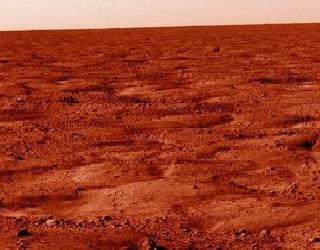
A file photo.
WASHINGTON (PTI): Scientists claim to have found clinching evidence that suggest Mars' interior holds vast reservoirs of water, with some spots apparently as wet as Earth's innards.
The new findings, published in the journal Geology, upend previous studies, which had estimated that the Red Planet's internal water stores were scanty at best -- something of a surprise, given that liquid water apparently flowed on the Martian surface long ago.
"It's been puzzling why past estimates for the planet's interior have been so dry," said study co-author Erik Hauri of the Carnegie Institution of Washington.
"This new research makes sense and suggests that volcanoes may have been the primary vehicle for getting water to the surface," Hauri was quoted as saying by LiveScience.
For their study, the scientists examined two Martian meteorites that formed in the planet's mantle, the layer under the crust. These rocks landed on Earth about 2.5 million years ago after being blasted off the planet by a violent impact.
Using a technique called secondary ion mass spectrometry, the team determined that the mantle from which the meteorites derived contained between 70 and 300 parts per million (ppm) of water. Earth's mantle, for comparison, holds roughly 50-300 ppm water, the researchers said.
The results, Hauri said, "suggest water was incorporated during the formation of Mars and the planet was able to store water in its interior during the planet's differentiation".
Some of this water apparently made to the surface in the ancient past. NASA's Spirit and Opportunity rovers, which landed on the Red Planet in 2004, have found lots of evidence that Mars was far warmer and wetter billions of years ago than it is today.
The two golf-cart-size robots have even spotted signs of ancient hydrothermal systems, suggesting that some places on the Red Planet once had both water and an energy source - two key ingredients for the existence of life as we know it.
While the new results would help scientists better understand Mars and its history, they could also shed light on the evolution of large, rocky bodies in a more general sense, the researchers said.
"Not only does this study explain how Mars got its water, it provides a mechanism for hydrogen storage in all the terrestrial planets at the time of their formation," said lead author Francis McCubbin of the University of New Mexico.
 Previous Article
Previous Article Next Article
Next Article













The Indian Air Force, in its flight trials evaluation report submitted before the Defence Ministry l..
view articleAn insight into the Medium Multi-Role Combat Aircraft competition...
view articleSky enthusiasts can now spot the International Space Station (ISS) commanded by Indian-American astr..
view article